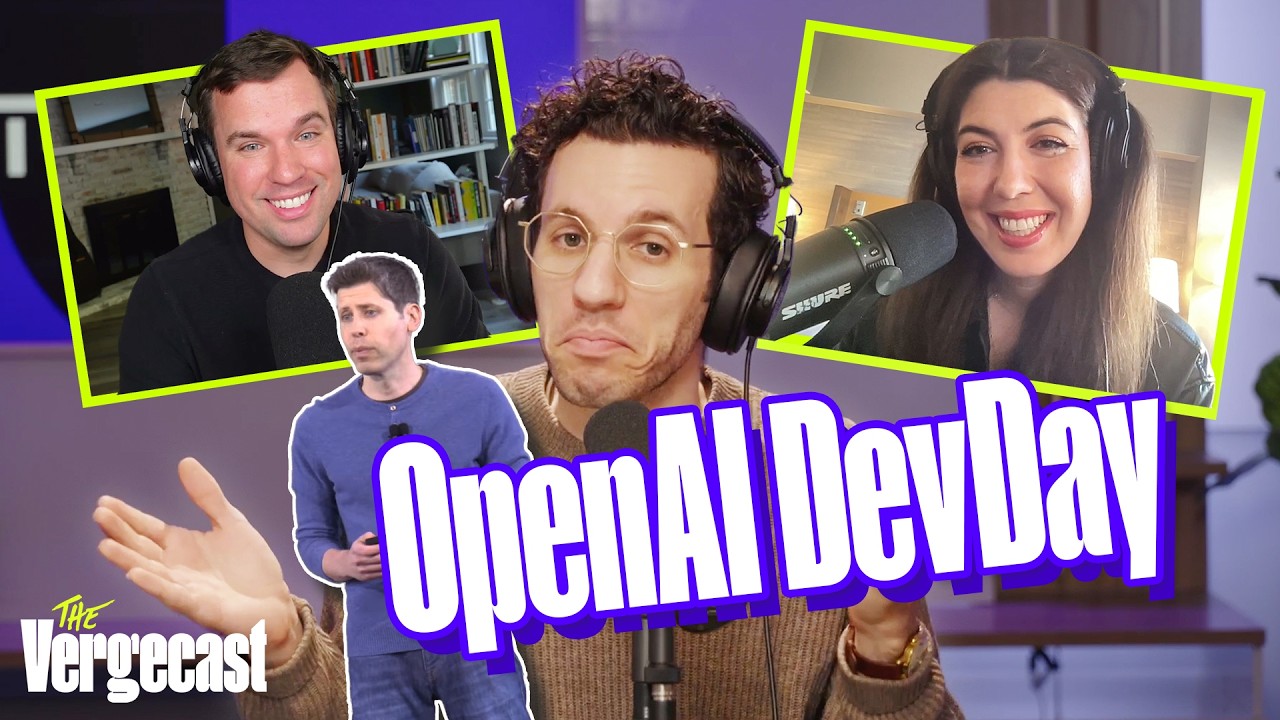The Vergecast hosts discuss OpenAI’s Dev Day announcements, highlighting ChatGPT’s new app integrations that aim to make it an all-encompassing platform for various services, alongside the launch of the AI-generated video app Sora and the ambitious but uncertain Johnny IV device. They also cover broader tech news, reflecting on the challenges and strategic moves within the AI and consumer tech industries as companies navigate innovation, platform control, and market pressures.
The Vergecast episode opens with hosts David Pierce, Jake Castanakis, and Hayden Field discussing the recent OpenAI Dev Day, a major event where OpenAI announced new features and tools aimed at developers and consumers alike. The event showcased a blend of technical demos and high-level presentations, striking a balance between deep developer content and broader consumer-facing announcements. A key highlight was the introduction of apps integrated directly into ChatGPT, allowing users to interact with services like Zillow or Spotify through conversational AI, marking a strategic shift towards making ChatGPT an “everything app” or operating system for various daily tasks.
The hosts delve into the implications of this app integration approach, contrasting it with the previously hyped vision of fully autonomous AI agents capable of independently navigating the internet. They argue that enabling companies to plug their APIs into ChatGPT is a more practical and immediate solution, leveraging existing platforms rather than relying on AI to learn complex web interactions. This strategy positions ChatGPT as a central hub or “home screen” for users, potentially replicating the success of app stores by becoming the primary interface for a wide range of services, though it also raises concerns about platform control and developer gatekeeping reminiscent of Apple’s ecosystem.
Attention then shifts to OpenAI’s new AI-generated video app, Sora, which has garnered significant interest for its ability to create meme-like, AI-generated videos that users can remix and share. Unlike other AI content platforms that often produce generic or uninspired outputs, Sora’s algorithm and social features foster a lively, collaborative environment where users engage with and iterate on content. However, the hosts express mixed feelings about the app’s long-term appeal, suggesting it may remain a niche or novelty experience rather than achieving the sustained engagement levels of platforms like TikTok, partly due to the inherent difference between AI-generated facsimiles and authentic human content.
The conversation also touches on OpenAI’s broader challenges, including the ambitious but still vague plans for the Johnny IV device—an always-on, AI-powered assistant facing significant privacy and computational hurdles. The hosts note OpenAI’s apparent uncertainty about the device’s specifics and the immense costs associated with the required compute power. They highlight OpenAI’s current approach of simultaneously pursuing multiple AI ventures, fueled by substantial investment but accompanied by financial pressures and the risk of overextension, painting a picture of a company racing to find a sustainable and profitable path forward.
In the lightning round, the hosts cover a variety of tech news, including Google’s strategic use of celebrity endorsements to boost Pixel phone sales, a useful new iOS setting that improves audio handoff behavior, Verizon’s acquisition of the wireless ISP Starry and its implications for urban internet access, Intel’s upcoming Panther Lake chips as a potential turning point for the company, Apple’s nuanced compliance with new age-gating laws, and Facebook’s ongoing efforts to pivot back towards a friend-focused social experience amid its dominance by Reels content. The episode closes with reflections on the evolving tech landscape and anticipation for future developments in AI and consumer technology.
